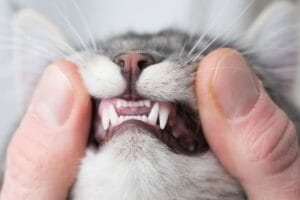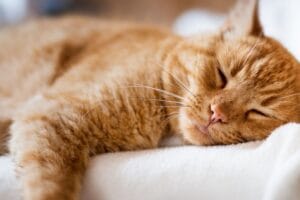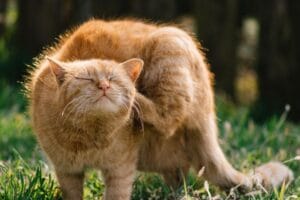Best Homemade Cat Foods and Remedies for Constipation
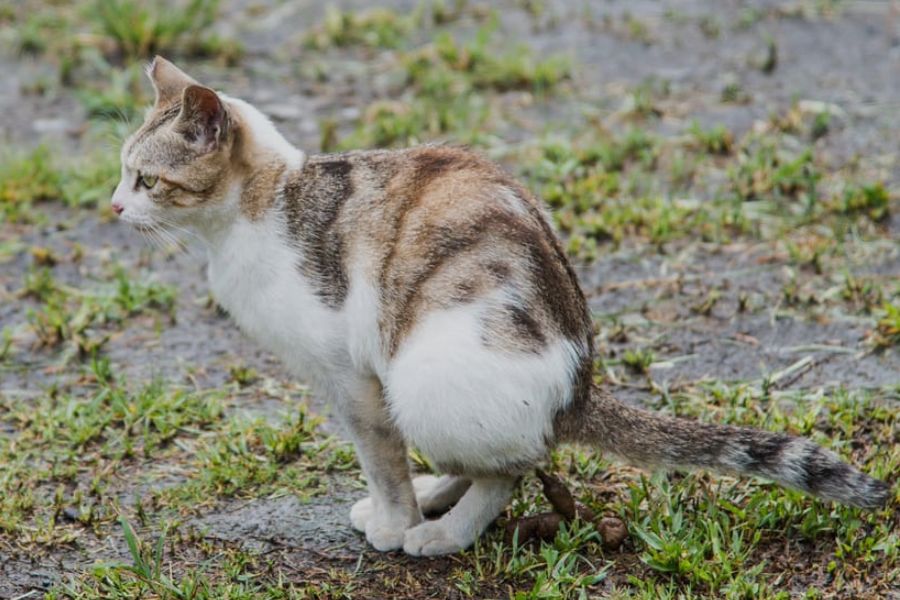
Caring for your pet is not just about providing love and attention; it’s also about ensuring their overall well-being, and that includes their digestive health. Constipation in cats is a common issue that can lead to discomfort, pain, and even more serious health problems if left unaddressed.
As a responsible cat owner, you have the power to make a significant difference in your cat’s life, and one effective way to do so is by preparing homemade cat food tailored to alleviate constipation.
In this comprehensive guide, we’ll introduce the best homemade cat foods and remedies for constipation, exploring the reasons why it’s a viable solution and providing you with valuable insights into crafting the best possible diet for your beloved feline friend. With the right knowledge and ingredients, you can help your cat maintain regular bowel movements and lead a happier, healthier life.
Understanding Constipation in Cats
Constipation is a condition characterized by infrequent or difficult bowel movements. In cats, it typically involves the passing of dry, hard stools. Some common causes of constipation in cats include:
- Dietary Factors: Insufficient fiber or moisture in the diet can lead to constipation. Cats that primarily consume dry kibble may be at a higher risk.
- Dehydration: Inadequate water intake can result in dry stools that are harder to pass.
- Hairballs: Cats that groom themselves excessively may develop hairballs, which can contribute to constipation.
- Lack of Exercise: Sedentary cats are more prone to constipation as physical activity helps stimulate the digestive system.
- Underlying Medical Conditions: Certain health issues, such as intestinal obstructions, neurological problems, or pelvic injuries, can cause constipation.
Identifying the Signs and Symptoms
Recognizing constipation in your cat is crucial for timely intervention. Keep an eye out for the following signs and symptoms:
- Straining in the Litter Box: If your cat spends an extended period in the litter box and strains without producing a stool, it could indicate constipation.
- Infrequent Bowel Movements: Cats typically defecate at least once a day. If your cat goes more than 48 hours without a bowel movement, it may be constipated.
- Dry, Hard Stools: Check the litter box for stool consistency. Constipated cats often pass small, dry, and firm stools.
- Pain or Discomfort: Your cat may exhibit signs of discomfort, such as vocalization, restlessness, or sensitivity in the abdominal area.
- Loss of Appetite: Constipated cats may lose their appetite or show reduced interest in food.
Benefits of Homemade Cat Food for Constipation
When it comes to addressing your cat’s constipation issues, homemade cat food offers a range of advantages that can significantly benefit your feline companion:
- Greater control over ingredients: Homemade cat food allows you to carefully select and monitor the quality of ingredients, ensuring your cat gets the best nutrition possible.
- Avoidance of fillers and additives: Commercial cat foods often contain fillers and additives that may contribute to constipation. With homemade meals, you can eliminate these potential triggers. Many of these fillers, such as grains (soy, wheat, etc.) are often what cause gastrointestinal problems in cats.
- Tailored to your cat’s needs: Homemade diets can be customized to address specific dietary requirements, allergies, or sensitivities that your cat may have.
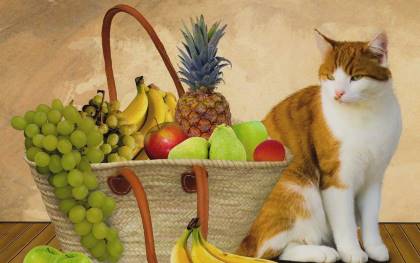
Essential Ingredients for Homemade Cat Food
Creating homemade cat food that effectively addresses constipation requires careful consideration of the ingredients you use. To ensure your cat receives a well-balanced and nutritious meal, focus on the following essential components:
A. Protein Sources for a Balanced Diet:
Cats are obligate carnivores, which means they rely heavily on animal-based proteins for their nutrition. Opt for high-quality protein sources such as lean meats like chicken, turkey, or beef. Avoid processed meats or those with excessive fat and seasoning, as these can exacerbate digestive issues. Alternatively, you could opt for “novel proteins” such as fish, duck, and venison, which are known to cause less problems with cats (in terms of allergies and other medical issues).
B. Fiber-Rich Ingredients to Promote Digestion:
Adequate fiber content is crucial for maintaining healthy digestion and preventing constipation. Incorporate fiber-rich ingredients like pumpkin, cooked sweet potatoes, or carrots. These can help soften stools and facilitate bowel movements. However, be cautious not to overdo it with fiber, as excessive amounts can lead to diarrhea.
C. Proper Fat Content:
While cats need fat in their diet, too much can lead to weight gain and digestive problems. Select lean cuts of meat to control fat intake, and consider adding a small amount of fish oil for its Omega-3 fatty acids, which can support overall health.
D. Key Vitamins and Minerals for Overall Health:
Cats require various vitamins and minerals to maintain optimal health. To meet these nutritional needs, consider adding supplements or multivitamins to your homemade cat food (such as Vitamin A, Vitamin D, Vitamin B1, Vitamin B2, Vitamin B3, Calcium…). Consult with a veterinarian or a veterinary nutritionist to formulate a recipe that meets your cat’s unique dietary needs.
E. Water and Hydration
Ensuring your cat is properly hydrated is the most important step in dealing with constipation issues. To encourage your cat to drink water, offer it small amounts of water whenever it is feeding time. You can also add small amounts of water to the food to increase its moisture content, which also helps make the food more digestible.

Best Homemade Cat Foods for Constipation
Providing your constipated cat with homemade meals can be a delicious and effective way to alleviate their discomfort. Here, we’ll explore three nutritious and cat-friendly recipes that can help alleviate constipation and improve your feline friend’s digestive health.
Recipe 1: Chicken and Pumpkin Puree
This recipe combines the lean protein of chicken with the fiber-rich and easily digestible pumpkin to promote regular bowel movements.
Ingredients:
- 1 cup cooked chicken breast, shredded
- 1/4 cup canned pumpkin (plain, unsweetened)
- 1/4 cup chicken broth (low sodium)
Instructions:
- Cook the chicken breast thoroughly and shred it into small, manageable pieces.
- In a blender or food processor, combine the shredded chicken, canned pumpkin, and chicken broth.
- Blend until the mixture reaches a smooth, puree-like consistency.
- Serve a small portion of this puree as a meal for your cat.
You can also replace chicken here with any other kind of meat, such as beef, venison, or duck (depending on your cat’s preferences).
Recipe 2: Fish and Brown Rice Medley
This recipe provides protein and essential fatty acids from the fish and adds a source of fiber and carbohydrates through the brown rice to support digestion.
Ingredients:
- 1/2 cup cooked fish (such as salmon or tuna), flaked
- 1/4 cup cooked brown rice
- 1 tablespoon fish oil (for added omega-3 fatty acids)
Instructions:
- Cook the fish until it’s fully cooked and can be easily flaked.
- Prepare the brown rice separately according to the package instructions.
- Mix the flaked fish and cooked brown rice together.
- Drizzle fish oil over the mixture and gently toss it to incorporate.
Recipe 3: Turkey and Sweet Potato Stew
This recipe offers a blend of lean protein from turkey and fiber from sweet potatoes to support healthy digestion and relieve constipation.
Ingredients:
- 1/2 cup cooked ground turkey (lean)
- 1/4 cup mashed sweet potato (plain, no additives)
- 1/4 cup water (adjust for desired consistency)
Instructions:
- Cook the ground turkey until it’s thoroughly cooked and no longer pink.
- Steam or boil the sweet potato until it’s soft and can be easily mashed.
- Combine the cooked turkey and mashed sweet potato in a bowl.
- Add water gradually while mixing to reach the desired stew-like consistency.
If your cat has lost weight recently due to excessive diarrhea, you can checkout our homemade cat food recipes for weight gain.
Best Homemade Cat Remedies for Constipation
Other than proper meals and foods, there are also various homemade cat remedies for constipation that you can try feeding your cat periodically. The remedies take the form of additives which can be added to your cat’s everyday meals, or in the form of broths that your cat can drink.
Psyllium Husk: Psyllium husk is a natural source of soluble fiber that can soften your cat’s stool and promote regular bowel movements. You can sprinkle a small amount (about 1/4 to 1/2 teaspoon) of psyllium husk onto your cat’s food, ensuring they have access to plenty of water.
Pumpkin Puree: Pumpkin is another excellent source of dietary fiber. It’s easy to prepare by mixing a teaspoon or two into your cat’s food. The fiber in pumpkin can aid in digestion and regulate bowel movements.
Olive Oil: A small amount of olive oil (about 1/4 to 1/2 teaspoon) added to your cat’s food can help lubricate their digestive tract, making it easier for stool to pass through. It’s also a source of healthy fats.
Fish Oil: Fish oil contains omega-3 fatty acids, which can have a mild laxative effect and help reduce inflammation in the digestive tract. You can add a drop or two of fish oil to your cat’s food, but be cautious not to overdo it, as excessive oil intake can lead to diarrhea.
Chicken Broth: Plain, homemade chicken broth without added salt or seasonings can be a tasty way to increase your cat’s fluid intake. The warm broth can also soothe your cat’s stomach and encourage them to drink more water. Ensure it’s at a comfortable temperature before serving.
Chia Seeds: Chia seeds are packed with fiber and can absorb water, creating a gel-like consistency that aids in digestion. Soak them in water before adding to your cat’s food.
Vegetable Broth: A vegetable broth made from carrots, celery, and spinach can be added to cat food to increase moisture content and fiber intake.
Conclusion
By focusing on essential components such as high-quality protein sources, fiber-rich ingredients, appropriate fat content, and vital vitamins and minerals, you can create homemade cat food that promotes digestion and overall well-being.
Additionally, maintaining proper hydration is paramount, so encourage your cat to drink water and consider adding moisture to their food. With the right knowledge and dedication to your cat’s health, you can help them enjoy a happier and healthier life, free from the discomfort of constipation.
